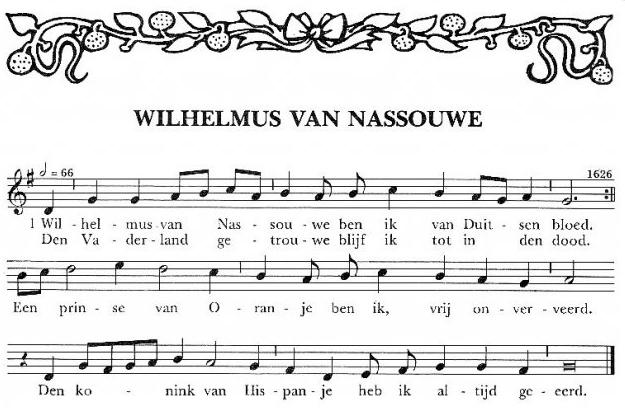Wilhelmus (National anthem)
Enlarge text Shrink text- LCN
"Wilhelmus van Nassouwe", known simply as "Wilhelmus", is the national anthem of both the Netherlands and its sovereign state, the Kingdom of the Netherlands. It dates back to at least 1572, making it the oldest national anthem in use today, provided that the latter is defined as consisting of both a melody and lyrics. Although "Wilhelmus" was not recognized as the official national anthem until 1932, it has always been popular with parts of the Dutch population and resurfaced on several occasions in the course of Dutch history before gaining its present status. It was also the anthem of the Netherlands Antilles from 1954 to 1964. "Wilhelmus" originated in the Dutch Revolt, the nation's struggle to achieve independence from the Spanish Empire. It tells of the Father of the Nation William of Orange who was stadholder in the Netherlands under the King of Spain. In the first person, as if quoting himself, William speaks to the Dutch about both the revolt and his own, personal struggle: to be faithful to the king, without being unfaithful to his conscience: to serve God and the Dutch. In the lyrics, William compares himself with the biblical David who serves under the tyrannical king Saul. As the merciful David defeats the unjust Saul and is rewarded by God with the kingdom of Israel, so too William hopes to be rewarded with a kingdom. Both "Wilhelmus" and the Dutch Revolt should be seen in the light of the 16th century Reformation in Europe and the resulting persecution of Protestants by the Spanish Inquisition in the Low Countries. Militant music proved very useful not only in lampooning Roman clerks and repressive monarchs but also in generating class-transcending social cohesion. In successfully combining a psalmic character with political relevancy, "Wilhelmus" stands as the pre-eminent example of the genre.
Read more on Wikipedia >
 Title
Title






